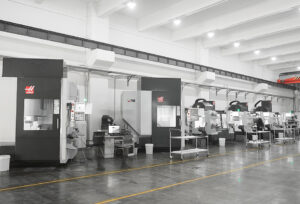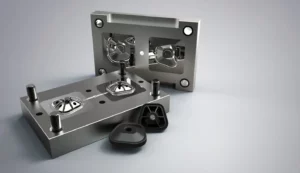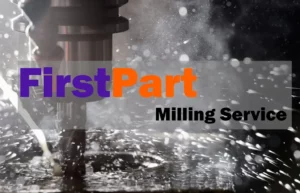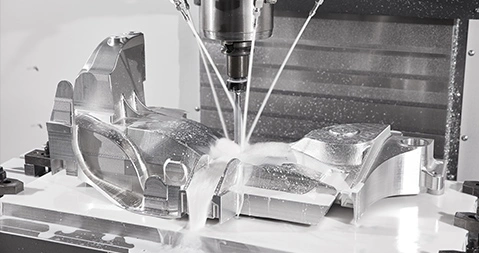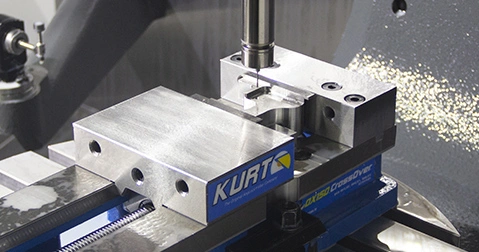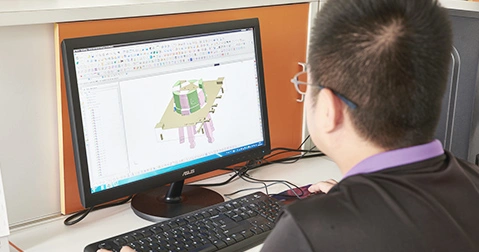To machine or to cast?
When dealing with metal end-use parts, most customers usually have a problem picking which of these process is optimal for them. Today’s blogs investigates both processes, highlighting the differences and when to use what.
What is CNC Machining?
CNC machining is a part manufacturing technique in which a block of material (workpiece) is stripped layer by layer by a computer-controlled tool till a final form/shape is attained. The computerized action of machining is what is referred to as CNC, meaning “computerized numerical control”. For any CNC machine, a set of coded instructions – the CAD file, is required to direct the computer on how to remove material from the block of workpiece.
CNC can be considered the opposite of 3D printing. This is because unlike 3D printing where parts are built by depositing material layer by layer, CNC machines removes material layer by layer from a workpiece to form the desired final part.
Die casting, on the other hand, is an industrial manufacturing process that is used to manufacture metal parts with complex geometries and high accuracy. The die casting process involves forming a solid metal by heating a metal alloy, pouring the molten metal into a mold and allowing the part to cool. Once this part is formed, it may be post-processed to add the desired finishing touches.
Die Casting or CNC Machining?
As explained above, both of these processes will manufacture high-quality metal parts. What then is the distinguishing factor in either of this process? Volume!
In the simplest way possible, the decision to either cast or machine your metal part should depend primarily on the volume of unit to be manufactured. For Die casting, the process is fast and highly repeatable. The presence of a high-quality mold also represents high investment, meaning that metal die casting processes are best suited for high-volume production.
CNC machining on the other hand may not be as cost-effective as die-casting for manufacturing large volume of parts. When it comes to low-volume manufacturing however, CNC machining is the preferred approach.
Away from cost and volume, there are other factors that may influence the selection either method. Here is a brief run through of die casting vs CNC machining:
· Speed
The turnaround times for both processes means that die casting will manufacture final parts faster than CNC machining. This is because once the tool/mold has been created, the molten metal can be casted. CNC machining on the other hand will take a number of hours to chip at the solid block of material before carving the final part. The speed of machining may also vary from material to material. For the overall leadtimes however, CNC machining may be faster.
· Waste
CNC machining will understandably generate more material waste than Die casting. In die casting, while there may be minimal spills of molten metal, the overall waste generated is significantly lower than CNC machining.
· Part performance, consistency and reliability
CNC machining offers a high level of precision, consistency and reliability that die-casted parts may not be able to measure up to. If quality and performance, high tolerance and precision is crucial to your part, CNC is a better option. Die casted parts may also struggle with defects like burrs, flashes, porosity and brittleness that isn’t common in CNC machined parts.
For repeatability, CNC machined parts may vary ever so slightly, however, Die casted parts are almost identical from lot to lot.
· Surface details
CNC machining will take longer and consequently cost more when making parts with high level of details. This is because of the time that the machine tools have to spend in engraving and creating the details. Die casting, on the other hand, can have the surface details engraved into the master mold/tool from which the replica parts is to be made. This thus makes it more suitable for making metal parts with a lot of details.
· Part complexity and customization
CNC machining may be able to achieve production of large parts with extreme complexities and high degree of customization. Die casting, on the other hand, may face certain limitations in achieving high precision in small parts.
Firstpart Die Casting and CNC Machining Services
Firstpart can help you optimize your production, design, budget and supply chain to choose what is best for you.
Our experience in metal die casting makes us one of the most competent metal casters, using a wide array of methods to ensure high-quality, defect-free parts every time. We also boast of excellence, experience and diversity in computerized machining to deliver high-precision parts for functional prototypes and end-use parts.
Depending on your project, we will use either or a combination of these technologies to deliver around budget, material and volume considerations.
Contact us to get in touch with one of our experts and receive free quotes, design and finish suggestions on your next project right away! Work with us and allow us to manage your die casting and metal machining needs and help you transition from rock solid prototypes to excellently finished die-casted products.


